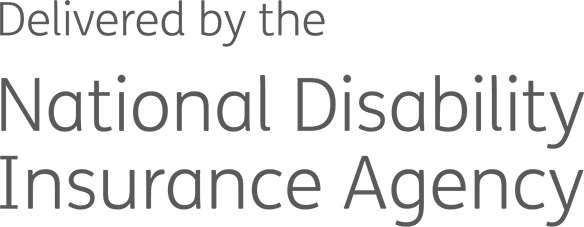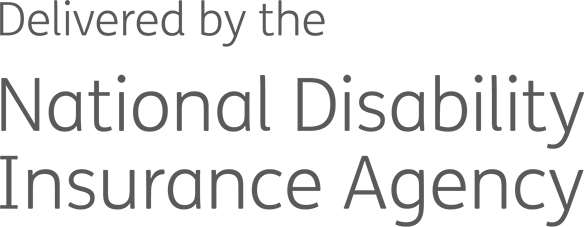

Our reference: FOI 21/22-0868
GPO Box 700
Canberra ACT 2601
1800 800 110
ndis.gov.au
20 July 2022
Angel
By email: xxxxxxxxxxxxxxxxxxxxxxxxx@xxxxxxxxxxx.xxx.xx
Dear Angel
Freedom of Information request — Notification of Decision
Thank you for your correspondence of 12 December 2021, in which you requested access to
documents held by the National Disability Insurance Agency (NDIA), under the Freedom of
Information Act 1982 (FOI Act).
The purpose of this letter is to provide you with a decision on your request. I sincerely
apologise for the delay in providing you with this decision.
Scope of your request
You have requested access to the fol owing documents:
Send the documents you found thanks.
Again, it relates to these specific documents:
“ ...a copy of the "Risk Management Framework" cited in the NDIA Annual Report
2013- 2014
... a copy of the Charter and/or Terms of Reference for the "Audit and Risk
Committee (ARC) cited in the NDIA Annual Report 2013-2014
... a copy of the "Risk Management Strategy" cited in the NDIA Annual Report 2013-
2014
... details and copies of "Risk Management" consultancies cited in the NDIA Annual
Report 2013-2014
... a copy of the NDIA's "Risk Management Declaration" for end of financial year
2013- 2014, as required by Part 5 of the legislative instrument: National Disability
Insurance Scheme—Risk Management Rules 2013.
...copies of al Audit and Risk Committee (ARC) Minutes of Meeting for the financial
year 2013-14, cited in the NDIA 2013-14 Annual Report [1]. This includes al
attendees, agenda, topics and resolutions/outcomes..”
Decision on access to documents
I am authorised to make decisions under section 23(1) of the FOI Act. My decision on your
request and the reasons for my decision are set out below.
1
I note that in FOI 20/21-0843, there were estimated to be approximately 30 documents in
scope. After considering the documents and conducting fresh document searches and
consultations, I have identified 8 documents which fal within the scope of your request.
The documents were identified by conducting searches of NDIA’s systems, using al
reasonable search terms that could return documents relevant to your request, and
consulting with relevant NDIA staff who could be expected to be able to identify documents
within the scope of your request.
I have decided to grant access to 5 documents in ful , and 3 documents in part.
I have decided to refuse access to parts 1, 3 and 5 of your request under section 24A of the
FOI Act.
Whilst it doesn’t fal within the scope of your request, I did locate 1 document that was a
cover letter for the document you are seeking access to for part 5 of your request. I have
decided to release this document to you in ful .
In reaching my decision, I took the fol owing into account:
your correspondence outlining the scope of your request
the nature and content of the documents fal ing within the scope of your request
the FOI Act
the FOI Guidelines published under section 93A of the FOI Act
consultation with relevant NDIA staff
factors relevant to my assessment of whether or not disclosure would be in the public
interest
the NDIA’s operating environment and functions.
Access to edited copies with exempt or irrelevant material deleted (section 22)
I have decided that Documents 2, 3 and 4 contain material that is exempt from disclosure
under the FOI Act and that Documents 1 to 4 contain material that is irrelevant to your
request. The irrelevant material relates to names and contact details of NDIA staff.
In accordance with section 22 of the FOI Act, I have considered whether it is possible to
delete the exempt and irrelevant material from the documents and have concluded that it is
reasonably practicable to do so. Accordingly, I have prepared an edited copy of the
documents with the exempt and irrelevant material removed.
Reasons for decision
Refuse a request for access (section 24A)
Section 24A of the FOI Act provides that an agency may refuse a request for access to a
document if al reasonable steps have been taken to find the document and the agency is
satisfied that the document cannot be found or does not exist.
The relevant line areas have conducted searches of the NDIA’s document management
systems and made enquiries with NDIA staff who could be expected to locate documents
that fal within the scope of your request. These enquiries have revealed that the NDIA is not
in possession of documents matching the scope of parts 1, 3 and 5 of your request. This is
because the documents date back to 2013, and they have not been able to be located within
the systems and search functions that we have available to use.
I am satisfied that al reasonable steps have been taken to locate the documents you have
requested and that the documents cannot be found. I have, therefore, decided to refuse
2
access to parts 1, 3 and 5 of your request, in accordance with section 24A(1)(b)(i ) of the FOI
Act.
Trade Secrets or Commercial y Valuable Information (section 47)
Section 47(1) of the FOI Act exempts a document if its release would disclose:
trade secrets
any other information having commercial value that would be, or could reasonably be
expected to be, destroyed or diminished if the information were disclosed.
For a document to be exempt under section 47(1)(b) of the FOI Act, paragraph 5.204 of the
FOI Guidelines provides that the document must satisfy two criteria:
the document must contain information that has a commercial value either to an agency
or to another person or body
the commercial value of the information would be, or could reasonably be expected to
be, destroyed or diminished if it were disclosed.
In determining whether Documents 2 and 4 contain information that is commercial y
valuable, I have had regard to the fol owing factors:
whether the information is known only to the agency or person for whom it has value or,
if it is known to others, to what extent that detracts from its intrinsic commercial value
whether the information confers a competitive advantage on the agency or person to
whom it relates — for example, if it lowers the cost of production or al ows access to
markets not available to competitors
whether a genuine ‘arm’s-length’ buyer would be prepared to pay to obtain that
information
whether the information is stil current or out of date
whether disclosing the information would reduce the value of a business operation or
commercial activity.
I am satisfied that the relevant information in Documents 2 and 4 is known only to the
Agency and Ernst and Young, and that if the information were disclosed, it would confer a
competitive advantage to other companies over Ernst and Young. I accept that the release
of the relevant information would reduce the commercial activity of Ernst and Young in
negotiating and accepting contracts in the future, as wel as prejudicing the NDIA’s ability to
obtain such services in the future for fear that an organisation’s financial information may be
disclosed under the FOI Act. I have not been able to locate any publicly available information
in relation to the financial information within the contracts that would indicate that the
information can be publicly released.
Additional y, I am satisfied that the relevant information in Documents 2 and 4 has a
commercial value to Ernst and Young, and that the commercial value would, or could
reasonably be expected to, be destroyed or diminished if this information was disclosed, as
other providers may be able to gain a competitive advantage over Ernst and Young by
having access to this information. Accordingly, I have decided that the relevant information in
Documents 2 and 4 is exempt under section 47(1)(b) of the FOI Act.
Personal privacy (section 47F)
Section 47F of the FOI Act conditional y exempts a document if its disclosure would involve
the unreasonable disclosure of personal information about any person (including a deceased
person).
Paragraph 6.127 of the FOI Guidelines states that the FOI Act shares the same definition of
‘personal information’ as the Privacy Act, which regulates the handling of personal
information about individuals (see s 4(1) of the FOI Act and s 6 of the Privacy Act). The
3
cornerstone of the Privacy Act’s privacy protection framework is the Australian Privacy
Principles (APPs), a set of legal y binding principles that apply to both Australian
Government agencies and private sector organisations that are subject to the Act. Detailed
guidance about the APPs is available in the Information Commissioner’s APP Guidelines.
Paragraphs 6.128 of the FOI Guidelines provides that personal information means
information or an opinion about an identified individual, or an individual who is reasonably
identifiable:
a. whether the information or opinion is true or not
b. whether the information or opinion is recorded in a material form or not.
Paragraph 6.129 of the FOI Guidelines provides that personal information is:
information about an identified individual or an individual who is reasonably identifiable
says something about a person
may be opinion
may be true or untrue
may be recorded in material form or not.
I have identified that Documents 2, 3 and 4 contain material which meets the definition of
‘personal information’ of a third party.
Under section 47F(2) of the FOI Act, in determining whether the disclosure of documents
would involve unreasonable disclosure of personal information, regard must be had to:
a. the extent to which the information is wel known
b. whether the person to whom the information relates is known to be (or to have been)
associated with the matters dealt with in the document
c. the availability of the information from publicly accessible sources
d. any other matters that the agency considers relevant.
Against these criteria, I take the view that:
a. it is apparent from the information that an individual is identifiable
b. the information referred to above is not readily available from publicly accessible
sources.
I have also had regard to the key factors for determining whether disclosure is unreasonable,
in line with Paragraph 6.142 of the FOI Guidelines and I am of the view that:
a. Documents 2, 3 and 4 contain third party personal information
b. release of the relevant material in Documents 2, 3 and 4 would cause stress on the third
party
c. no public purpose would be achieved through release.
With reference to the assessment above, I have decided that it would be unreasonable to
publicly disclose this personal information and it is, therefore, conditional y exempt under
section 47F(1) of the FOI Act. My considerations of the public interest are set out below.
Public interest considerations – section 47F
Section 11A(5) of the FOI Act provides that access to a document covered by a conditional
exemption must be provided unless disclosure would be contrary to the public interest.
I have not considered any of the irrelevant factors as set out under section 11B(4) of the FOI
Act in making this decision.
In favour of disclosure, I have considered the factors outlined in section 11B(3) of the FOI
Act, and I have determined that disclosure of the relevant information in Documents 2, 3 and
4

4 would promote the objects of the FOI Act by providing access to documents held by the
government.
Against disclosure, I consider that disclosure of the relevant information in Documents 2, 3
and 4 would not:
contribute to the publication of information of sufficient public interest to justify the likely
harm caused by release
enhance Australia’s representative democracy in the ways described in section 11B(3) of
the FOI Act
inform any debate on a matter of public importance, or promote oversight of public
expenditure.
I find that there is no public interest in the disclosure of information conditional y exempt
under section 47F of the FOI Act. The harm that would result from disclosure is that it could
reasonably be expected to:
prejudice the ability of the Agency to protect the security and integrity of information held
in the Agency
affect an individual’s right to privacy by having their personal information in the public
domain.
In summary, I am satisfied that the factors against disclosure of the information outweigh the
factors in favour of disclosure and that, on balance, it would be contrary to the public interest
to release this information to you. Accordingly, I have decided that the relevant information in
Documents 2, 3 and 4 is exempt under section 47F of the FOI Act.
Release of documents
The documents for release, as referred to in the Schedule of Documents at Attachment A,
are enclosed.
Rights of review
Your rights to seek a review of my decision, or lodge a complaint, are set out at
Attachment B.
Should you have any enquiries concerning this matter, please do not hesitate to contact me
by email at xxx@xxxx.xxx.xx.
Yours sincerely
Carolyn
Assistant Director FOI
Parliamentary, Ministerial & FOI Branch
Government Division
5
Attachment A
Schedule of Documents for FOI 21/22-0868
Document
Page
Description
Access Decision
Comments
number
number
1
1-5
Procurement of Internal Audit Services
FULL ACCESS
Irrelevant material
removed under section
Date: 11 September 2013
22 of the FOI Act
2
6-10
Schedule 1 – Order Number CN0127
PARTIAL ACCESS
Irrelevant material
removed under section
Date: 23 December 2013
Exemptions claimed:
22 of the FOI Act
s47 – trade secrets or commercial y
sensitive information
s47F – personal privacy
3
11-13
Deed of Variation
PARTIAL ACCESS
Irrelevant material
removed under section
Date: 23 December 2013
Exemption claimed:
22 of the FOI Act
s47F – personal privacy
4
14-17
Deed of Variation
PARTIAL ACCESS
Irrelevant material
removed under section
Date: 4 January 2016
Exemptions claimed:
22 of the FOI Act
s47 – trade secrets or commercial y
sensitive information
s47F – personal privacy
5
18-29
Audit and Risk Committee Meeting Minutes
FULL ACCESS
Date: 2 December 2013
6
30-36
Audit and Risk Committee Meeting Minutes
FULL ACCESS
Date: 12 February 2014
7
37-48
Audit and Risk Committee Meeting Minutes
FULL ACCESS
Date: 22 April 2014
6
Document
Page
Description
Access Decision
Comments
number
number
8
49-54
Audit, Risk & Finance Committee Charter
FULL ACCESS
Not Dated
9
55
Letter regarding the Risk Management
FULL ACCESS
Declaration
Date: 30 September 2014
.
7

Attachment B
Your review rights
Internal Review
The FOI Act gives you the right to apply for an internal review of this decision. The review
wil be conducted by a different person to the person who made the original decision.
If you wish to seek an internal review of the decision, you must apply for the review, in
writing, within 30 days of receipt of this letter.
No particular form is required for an application for internal review, but to assist the review
process, you should clearly outline your grounds for review (that is, the reasons why you
disagree with the decision). Applications for internal review can be lodged by email to
xxx@xxxx.xxx.xx or sent by post to:
Freedom of Information Section
Parliamentary, Ministerial & FOI Branch
Government Division
National Disability Insurance Agency
GPO Box 700
CANBERRA ACT 2601
Review by the Office of the Australian Information Commissioner
The FOI Act also gives you the right to apply to the Office of the Australian Information
Commissioner (OAIC) to seek a review of this decision.
If you wish to have the decision reviewed by the OAIC, you may apply for the review, in
writing, or by using the online merits review form available on the OAIC’s website at
www.oaic.gov.au, within 60 days of receipt of this letter.
Applications for review can be lodged with the OAIC in the fol owing ways:
Online:
www.oaic.gov.au
Post:
GPO Box 5218, Sydney NSW 2001
Email:
xxxxxxxxx@xxxx.xxx.xx
Phone:
1300 363 992 (local cal charge)
Complaints to the Office of the Australian Information Commissioner or the
Commonwealth Ombudsman
You may complain to either the Commonwealth Ombudsman or the OAIC about actions
taken by the NDIA in relation to your request. The Ombudsman wil consult with the OAIC
before investigating a complaint about the handling of an FOI request.
Your complaint to the OAIC can be directed to the contact details identified above. Your
complaint to the Ombudsman can be directed to:
Phone:
1300 362 072 (local cal charge)
Email:
xxxxxxxxx@xxxxxxxxx.xxx.xx
Your complaint should be in writing and should set out the grounds on which it is considered
that the actions taken in relation to the request should be investigated.
1



